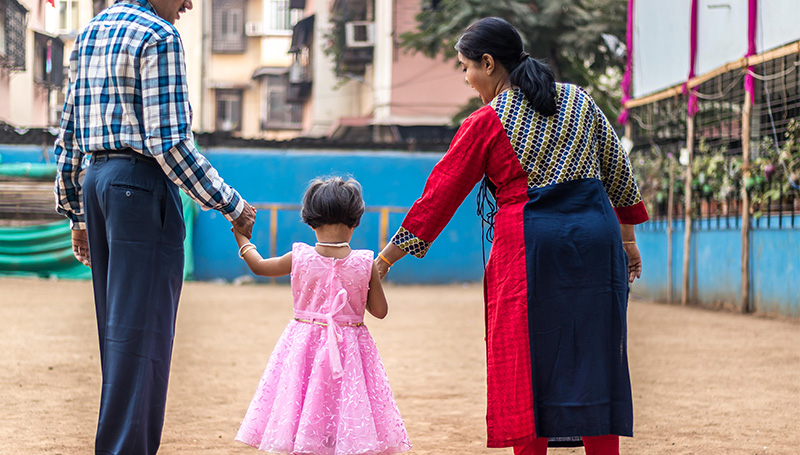
Adoption
Adoption is a significant and life-changing decision that provides children with loving families and a stable environment. In India, the adoption process is governed by various laws and procedures designed to protect the welfare of the child and ensure that adoptive parents are suitably prepared. This guide offers a comprehensive overview of the adoption process in India, including eligibility criteria, the steps involved, and key considerations.
Types of Adoption in India
-
Domestic Adoption:
- Definition: Adoption of Indian children by Indian citizens residing within the country.
- Laws Governing: Primarily regulated under the Juvenile Justice (Care and Protection of Children) Act, 2015 (JJ Act) for inter-religious and non-Hindu adoptions, and the Hindu Adoption and Maintenance Act, 1956 (HAMA) for Hindu adoptions.
-
Inter-Country Adoption:
- Definition: Adoption of Indian children by foreign nationals or Indian citizens living abroad.
- Laws Governing: Regulated by the JJ Act and overseen by the Central Adoption Resource Authority (CARA) for international adoptions.
Eligibility Criteria for Adoption
1. Hindu Adoption and Maintenance Act, 1956 (HAMA):
- Age: The adopter must be at least 21 years old and at least 21 years older than the child.
- Marital Status: Both married couples and single individuals can adopt. If a couple is adopting, both spouses must consent.
- Financial Stability: The adopter must be financially capable of providing for the child.
2. Juvenile Justice (Care and Protection of Children) Act, 2015 (JJ Act):
- Age: Prospective adoptive parents must be at least 25 years old. If adopting as a couple, the combined age should be at least 50 years, with each partner being at least 25 years old.
- Marital Status: Both married couples and single individuals can adopt. For couples, both partners must agree to the adoption.
- Health and Financial Stability: The adoptive parents must be in good health and financially stable to support the child.
The Adoption Process
-
Registration:
- HAMA: Prospective adopters must apply to the court with a petition for adoption, including personal details and reasons for adopting.
- JJ Act: Prospective adoptive parents need to register with the Central Adoption Resource Authority (CARA) or authorized adoption agencies. This involves submitting documents and undergoing a home study assessment.
-
Home Study Report:
- Assessment: A social worker conducts a home study to evaluate the suitability of the prospective adoptive parents. This includes interviews, home visits, and assessment of financial and emotional stability.
- Approval: The adoption agency or CARA reviews the home study report to determine if the applicants meet the criteria for adoption.
-
Matching Process:
- Selection: Once approved, the prospective parents are matched with a child based on compatibility and the child's needs. The adoption agency or CARA manages this process.
- Referral: A referral is provided, including the child’s background, medical history, and other pertinent details.
-
Legal Formalities:
- Court Petition: Under HAMA, a petition is filed with the court to formalize the adoption. The court reviews the petition and conducts hearings before issuing an adoption order.
- Adoption Order: Under the JJ Act, the adoption is finalized through an adoption order issued by the court after reviewing the adoption agency's or CARA's approval.
-
Post-Adoption Procedures:
- Follow-Up: Regular follow-up visits are conducted to monitor the child’s adjustment and well-being. This ensures the adoption is successful and the child is adapting well.
- Legal Documentation: An adoption certificate is issued, legally recognizing the adoptive parents as the child’s parents. This certificate is crucial for legal and administrative purposes.
-
Finalization:
- Issuance of Adoption Deed: The adoption deed is executed, formalizing the adoption and transferring legal rights and responsibilities to the adoptive parents.
- Record Update: The adoption is registered with relevant authorities to update records and provide the child with a new legal identity.
Key Considerations
-
Financial and Emotional Readiness:
- Ensure that you are financially stable and emotionally prepared for the responsibilities of raising a child.
-
Understanding the Child’s Background:
- Be aware of the child’s background, including any special needs or medical conditions, to provide appropriate care and support.
-
Legal Assistance:
- Consulting with a legal expert experienced in adoption law can help navigate the complexities of the process and ensure compliance with all legal requirements.
-
Cultural Sensitivity:
- Respect and accommodate the child's cultural background and heritage, especially in cases of inter-country or inter-religious adoptions.
-
Time Frame:
- Be prepared for the adoption process to take several months to years, depending on factors such as the availability of children and the efficiency of the adoption agency.





